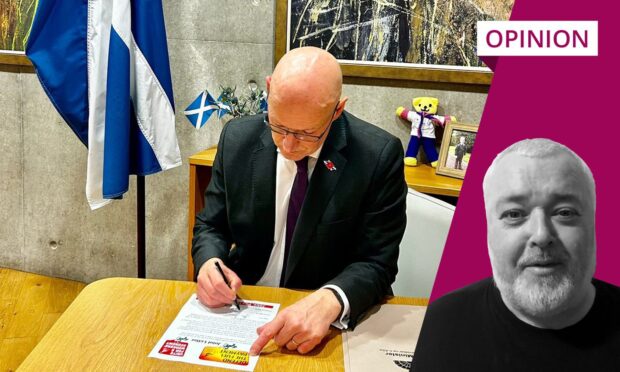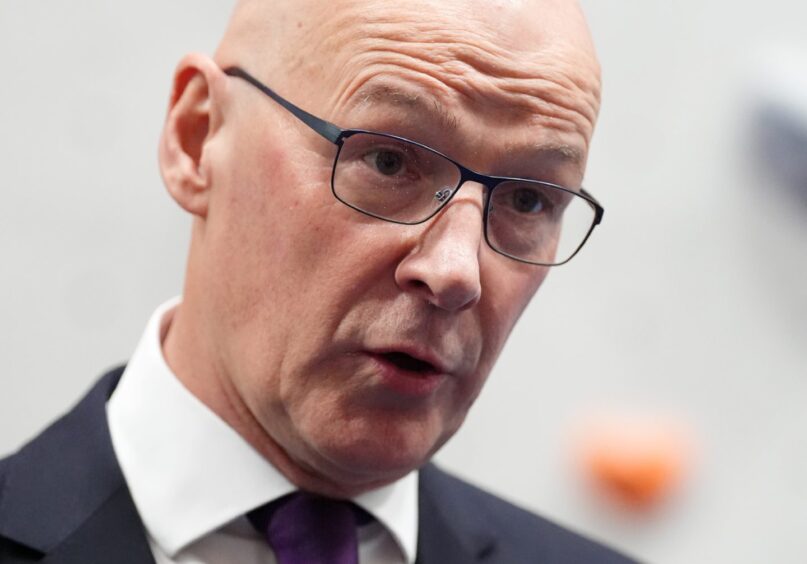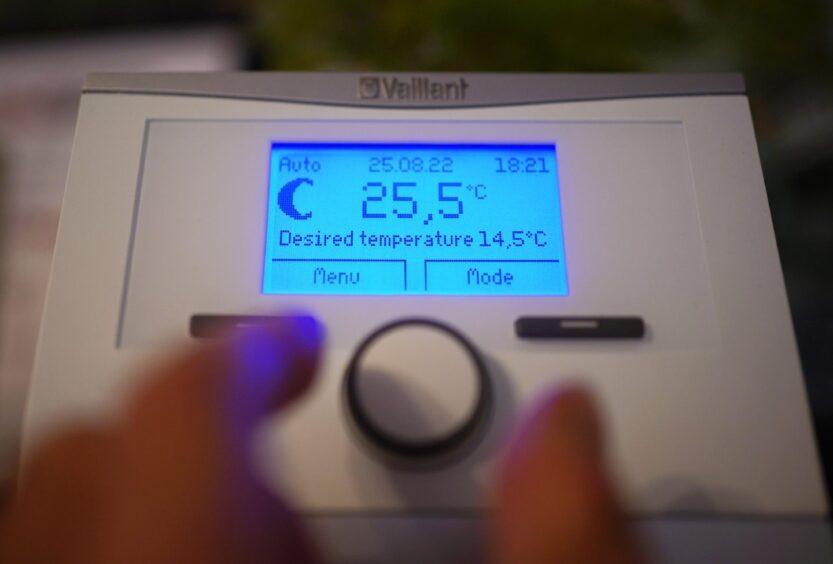Since winning its first Scottish election in 2007, the SNP has been relentless in its pursuit of more powers for Holyrood.
Successive nationalist First Ministers have made strengthening devolution a priority. And they’ve been very successful in their campaigns.
The Scottish Parliament now has responsibility in a number of areas – particularly benefits – which were previously the exclusive preserve of Westminster.
But winning powers and actually using them are two different things, entirely.
On Wednesday, hours before Chancellor Rachel Reeves’s first budget, we saw this peculiar phenomenon before our very eyes.
“I am proud,” wrote John Swinney on social media, “to have signed the letter in support of [the] campaign to reverse the UK Government’s cut to the winter fuel payment.”
The winter fuel payment cut, he added, was not what voters in Scotland were promised.
Accompanying the First Minister’s words was a carefully staged photograph in which, a Saltire by his shoulder, he signed the letter which had been circulated by the trade union Unite.
But behind this portrait of victimhood lay an uncomfortable truth for Swinney. It is his Government that has decided to cut support with fuel bills for pensioners in Scotland.
The SNP had already announced plans to introduce what it calls the Pension Age Winter Heating Payment long before the UK Government decided to means test the benefit in England and Wales.
It was the decision of ministers in Holyrood rather than Westminster to similarly restrict planned payment in Scotland.
Ah, say SNP spinners, but the Scottish Government had no choice in the matter. Cuts to the payment south of the border will mean £150million less in Holyrood’s coffers.
This is nothing but – yet another – exercise in fobbing off from the SNP.
The simple truth is that the entire purpose of Scottish devolution is to allow politicians in Edinburgh to go their own way across the policy spectrum.
If Swinney doesn’t want to means test winter fuel payments he doesn’t need to
If the First Minister doesn’t want to means test fuel payments for Scottish pensioners, he needn’t do so.
Instead, Swinney could make difficult decisions of his own. He could, for example, stop giving free prescriptions to the wealthy. He could scrap free university tuition for kids from the richest families in the country. He could – whisper it – stop wasting public money on preparations for a second referendum that he has no power to deliver.
The SNP moved from the fringes of our politics to become the dominant force by selling itself as fundamentally different to other parties. It would go its own way and, in doing so, make Scotland fairer and more successful.
Are we now to accept that the First Minister is unable to act independently of Westminster? Are we truly to believe that he has no more power than the ability to sign a letter?
Across Scotland – especially in the Highlands – the winter fuel allowance has made a huge, positive difference to the lives of those on lower incomes. If the Scottish Government is as good as its word, then means testing will ensure the benefit remains for those in genuine need.
If, however, it does not, then this will be down to decisions made by the First Minister and his team.
First Minister’s insistence on blaming UK Government is pure spin
Ironically, Swinney’s reputation as a politician of competence was forged during his time as Finance Secretary.
While Alex Salmond was the firebrand leader and Nicola Sturgeon the link with a new generation of voters, Swinney was the cautious voice of reason, a politician who had more in common with local bank managers of yore than with populists who promise the earth and then – inevitably – fail to deliver.
Year in, year out, Swinney would boast that he’d “balanced the budget” (which, it’s worth pointing out, is a legal obligation rather than an act of genius) and insist only the SNP could be trusted to spend taxpayers’ money wisely.
The argument that the decision to means test the fuel payment south of the border means the Scottish Government has no choice but to follow suit is destroyed by the delivery of free prescriptions.
This policy shows, clearly, that ministers at Holyrood can do their own thing (even if that means cutting hundreds of millions from NHS drugs budgets).
The First Minister’s insistence on blaming the UK Government for his decision to means test winter fuel payments is pure spin, aimed at deflecting attention from his government’s failings.
As it happens, on Wednesday Rachel Reeves announced a £3.4billion increase in funding for the Scottish Government.
Perhaps John Swinney will write her a letter of thanks.
Euan McColm is a regular columnist for various Scottish newspapers



Conversation